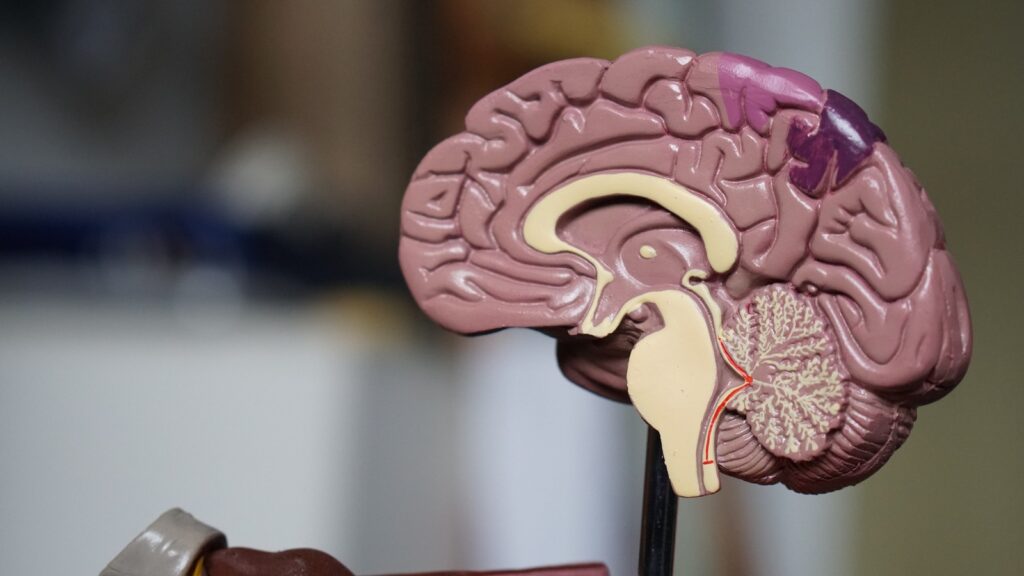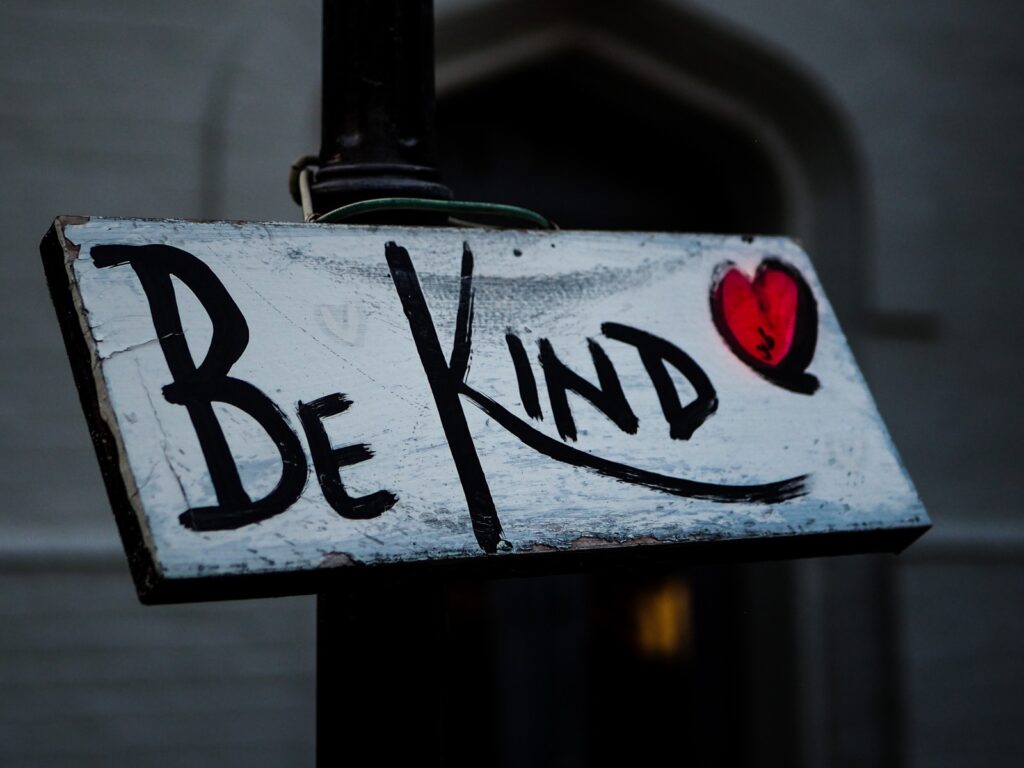What Is Anxiety?
Adam Young, a licensed clinical social worker and author of the podcast, The Place We Find Ourselves, describes anxiety as the experience we feel when our bodies has a deep reservoir of “unfelt emotions.” Anxiety is often linked to experiences in the past where we’ve disallowed ourselves to feel and experience certain emotions such as grief, sadness, or anger. Because we’ve pushed those important emotions beneath the surface, anxiety is the feeling of not allowing ourselves to experience those core emotions.
Anxiety is not the same as fear. Fear is the emotional response we feel to real or perceived danger. If a fire broke out in your kitchen on the stovetop, you would feel fear, not anxiety. Fear is the response to the very real danger of being burned, a helpful emotion that helps us stay alive. Fear is the emotional reaction to the environment and any genuine or perceived threats. Anxiety, on the other hand, is the emotional response we feel when we are avoiding the emotional processing of other feelings. You do not feel anxious when flames erupt from untended pot grease on the stove. You do feel anxious in situations that might remind you of past fears or unprocessed emotions. For example, a traumatic childhood experience getting burned might lead you to feel anxious when your toddler is playing near the burner knobs.
The quick diagnostic test: if you are feeling something that seems like fear, but you are not in any actual danger in the moment, you’re probably experiencing anxiety.
Why Am I Anxious?

If anxiety is caused by a history of unprocessed emotions, then our anxieties are usually linked to our early experiences of a particular emotion. If your parents reacted negatively to expressed sadness during your childhood, there’s a high chance you gradually learned to repress feelings of sadness while growing up. What are the consequences? One, you begin to associate sadness with negativity (from your parents). And two, you begin to accumulate this deep reservoir of “unfelt” sadness. As an adult, Adam Young explains, you are likely to experience anxiety around things and events that might lead to sadness. Instead of processing one isolated event of sadness, you feel overwhelmed because that singular events bubbles up this huge cumulative pool of feelings from the past that you haven’t allowed your body to process and properly experience.
Many times, these early experiences are out of our control. If a six-year-old boy is raised by parents who shunned anger and punished him whenever he voiced feelings of anger, he is likely to have learned to avoid or ignore feelings of anger all throughout his life. The result as a teenager though, is that he may no longer know how to healthily process feelings of anger when they do arise in situations unrelated to his parents. He might feel anxious when others raise their voices at him, or maybe in traffic situations where he or others express road rage. This boy might start to feel out of control when he does experience feelings of anger himself. But is that his fault? Not really—his anxiety arises simply from the conditions and environment he was brought up in.
It’s important to remember that anxiety is not a conscious choice in the moment. Rather, it’s the body noticing and feeling emotions that haven’t been properly dealt with or truly felt. Remember: anxiety is not your fault or the result of doing something wrong. Anxiety is simply your body’s response to large portions of unfelt emotions.
Tips For Dealing With Anxiety
Our brain is made of three parts: the cortex, the limbic system, and the brain stem. We experience anxiety through the limbic system, the middle portion that regulates our behaviors and emotions. Too many times we are told to deal with our anxiety from a top-down approach. Telling an anxious person to just “not be anxious” is never really helpful. That’s trying to use our cortex, our “thinking brain,” to calm our limbic system by way of “self talk.” It’s the top-down approach of using your conscious brain to soothe a more unconscious part of your brain responsible for emotions and things like “flight or fight” responses or adrenaline.

Instead, it’s much more effective to try and combat a response in the limbic part of your brain with a bottom-up approach. This means using activity from an even less conscious part of your brain, the brain stem, which is responsible for regulating your heartbeat and breathing. A bottom-up approach means taking 10 deep breaths in a row in order to slow your breathing and bring more oxygen to your brain. This means pressing your feet firmly into the ground. These brain stem functions will naturally and automatically help with the symptoms you experience through your limbic system as well. Reducing your heart rate and slowing your breathing will tell your limbic system that there is no immediate danger that you need to run from. “Bottom-up” approaches to dealing with anxiety will vary from person to person. It could involve a familiar and calming piece of music. It could involve a soothing scent or oil. It could involve lighting a candle or punching a punching bag.
So How Do We Start Dealing With Anxiety in a Healthy Manner?
I loved this podcast because it also gives some practical steps to combat anxiety.
The first key step to dealing with anxiety is to simply start noticing it. Only then can you begin to distinguish “fear” from “anxiety.” You can start to perceive feelings of anxiety as your body trying to tell you something. Remember, anxiety is not a “bad” or “negative” emotion. It is simply your body’s response to unprocessed feelings and events, which may something be outside of your control. Two additional responses that Adam Young recommends:
- Be curious. Ask yourself, “what is my body trying to tell me?” Be open and curious about yourself. What were you thinking and experiencing right before you started feeling anxious? What could your experiences of anxiety be surfacing about the past? Are there important emotions you haven’t given yourself permission to feel recently?
- Be kind. Treat yourself with gentleness and kindness. Some people get anxious about being anxious. Instead, see your anxiety not as a negative but as a positive emotion. Your body is waving a red flag to get your attention. How can you use some bottom-up approaches (breathing, pressing your palms together) to calm your limbic brain? How do you use your cortex to acknowledge, affirm, and then assess your feelings?

Unhealthy Christian Attitudes That Lead To Anxiety
I found this podcast so helpful in understanding the basics of anxiety, and also how Christians and church culture at large unknowingly perpetuate the repression of certain core emotions.
Many Christians are taught to “just trust God” from an earlier age, thus invalidating their feelings of insecurity or genuine fear when they arise.
Christians are taught to “always forgive their enemies,” thus stifling feelings of rage or anger the moment they arise.
Christians are taught to “praise God” and rehearse how “God is always good,” thus removing the opportunity to experience and engage with feelings of grief or sadness.
All of these are biblical principles, but when they are emphasized as the “only right response” to a situation, it leads to an inability to process other important, God-given emotions. Fear is not wrong to feel. Anger is not a sin. Sadness does not indicate lack of trust. In fact, Jesus felt all of these emotions (Mark 11:15-18, Matthew 26:38, Luke 22:41–44). Rather than stuff or deny those emotions, we better honor God when we allow ourselves to feel the emotions he has given us to feel.
A Final Note About Jesus and Anxiety

It might be helpful, for either yourself or someone you are supporting, that anxiety is a type of suffering. Physiologically, we feel anxious because our brains are flooded with an influx of cortisol. High levels of cortisol over long periods of time are not healthy for the brain.
Thankfully, we know that Jesus was no stranger to suffering. And what do you think he wants to do in response to our suffering? Asking the question, “Does God want us to experience anxiety?” is kind of like asking, “Does God want us to suffer?” The answer is probably no. But that doesn’t mean that anxiety is wrong or bad. The true answer to “Does God want us to suffer?” is both yes and no. God allows suffering in this world. He does not want us to suffer, but he also meets us right in the middle of our suffering.
Above all, maybe God wants to respond to our anxiety (our suffering) with love.
And if that’s the case, that means we have permission to respond to ourselves with love as well. How best can we take care of and honor our God-given bodies?
By paying attention to our anxiety.
By taking steps to be kind to ourselves in the moment.
By allowing ourselves to feel and truly experience the full range of human emotions, from rage to sadness to grief to joy to disappointment.
I don’t believe that God wants us to stay in suffering. After being kind and receptive to our own bodies, we can then, as Adam Young recommends, be curious about things that will help us alleviate feelings of anxiety in the future, or to start processing these emotions from the past. Being anxious does not mean there is something wrong or “broken” about you. It just means that there might be certain (God-given) emotions and feelings that you haven’t allowed yourself to fully experience.


Nice post! Hadn’t thought of anxiety vs. fear in that way before.
I also like the Unhealthy Christian Attitudes That Lead To Anxiety section. Those are ideas that I bet many people feel but haven’t heard explicitly communicated before. Would love to also see a future piece about the conflict between common Christian understanding of peace/joy vs. working hard to achieve.
Thanks, David!!! Appreciate the feedback on what interests you and also what could be expounded on more in the future 😋 Your other statement also gives me an idea for a blog post… “working hard to achieve” is often seen as a “worldly” approach to life, until you realize that many Christians also “work hard to achieve” this state of being at peace/joy (which kind of defeats the purpose). Good thing for God’s grace.